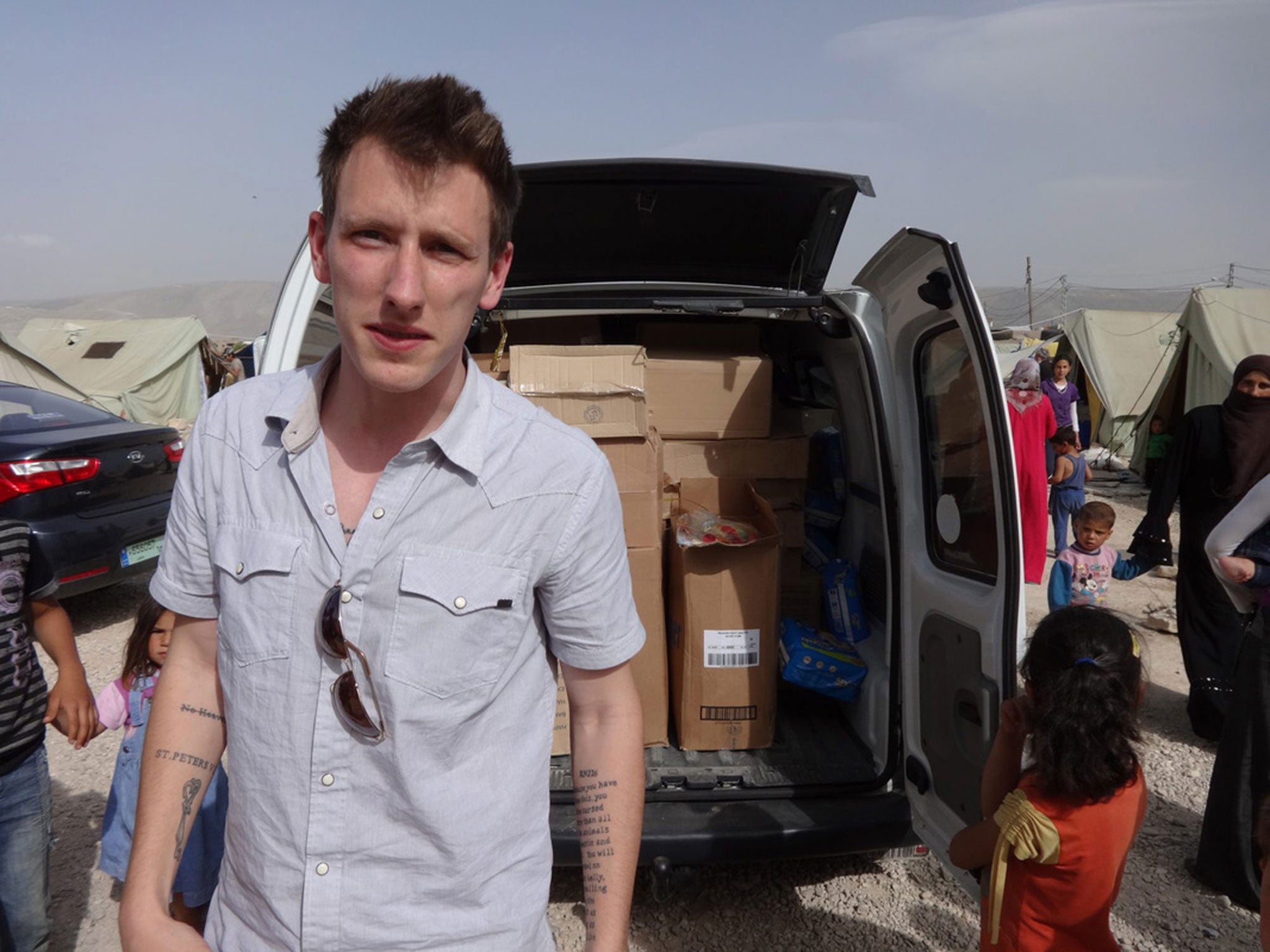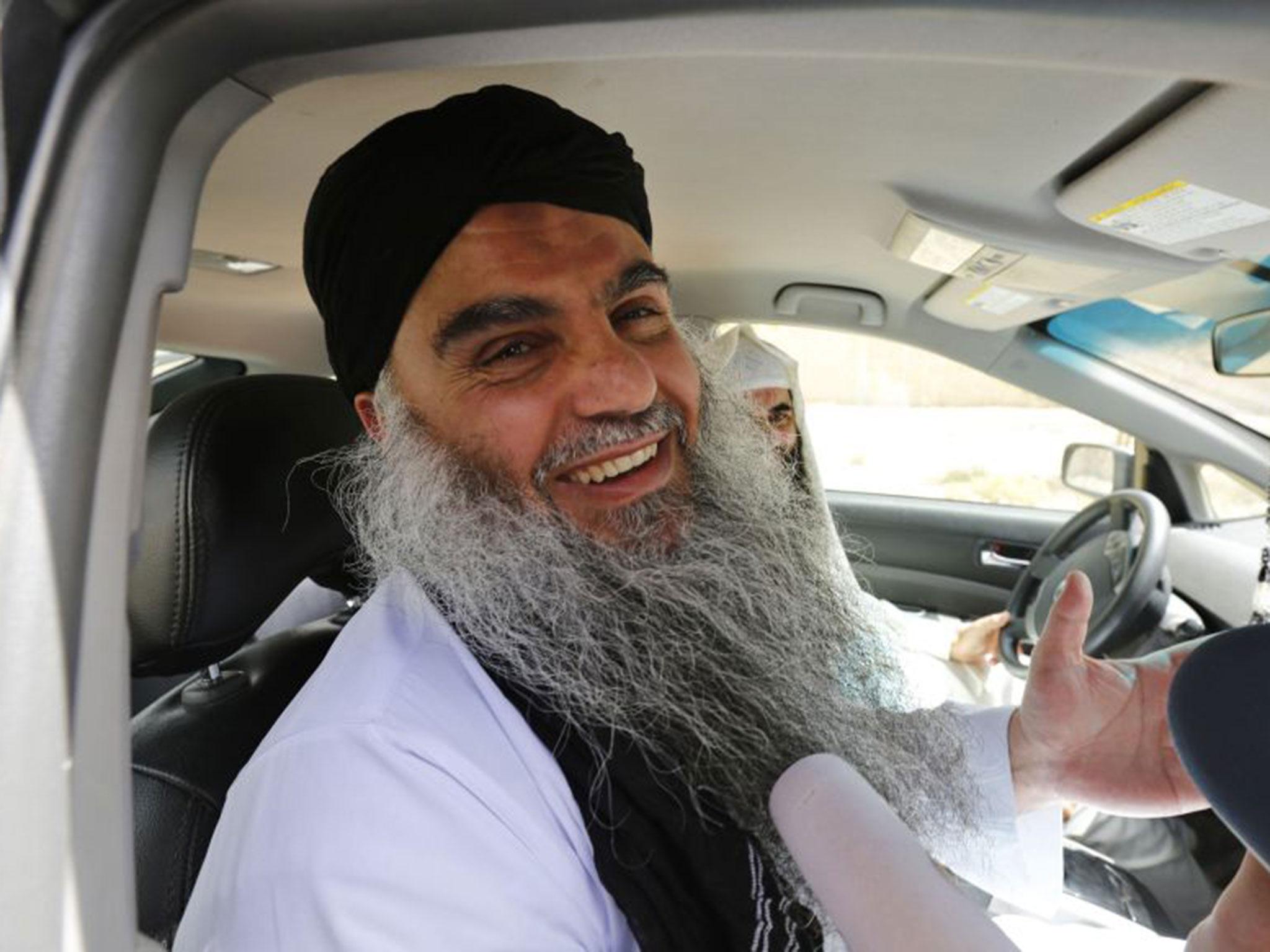FBI 'backed secret talks' between Abu Qatada and jihadi cleric with Isis to free Abdul-Rahman Peter Kassig
Talks spearheaded by controversial lawyer 'collapsed when second cleric was detained by Jordan'

Your support helps us to tell the story
From reproductive rights to climate change to Big Tech, The Independent is on the ground when the story is developing. Whether it's investigating the financials of Elon Musk's pro-Trump PAC or producing our latest documentary, 'The A Word', which shines a light on the American women fighting for reproductive rights, we know how important it is to parse out the facts from the messaging.
At such a critical moment in US history, we need reporters on the ground. Your donation allows us to keep sending journalists to speak to both sides of the story.
The Independent is trusted by Americans across the entire political spectrum. And unlike many other quality news outlets, we choose not to lock Americans out of our reporting and analysis with paywalls. We believe quality journalism should be available to everyone, paid for by those who can afford it.
Your support makes all the difference.US counter-terrorism officials backed negotiations with the spiritual leadership of Isis to free American Isis hostage Abdul-Rahman Peter Kassig that would include prominent jihadi clerics and a former Guantánamo detainee, it has been revealed.
Emails seen by The Guardian reportedly show the ultimately unsuccessful talks to rescue Kassig with the militant group’s spiritual leadership began in October and were designed by New York lawyer Stanley Cohen, who has previously represented Osama bin Laden’s son-in-law in court.
The FBI was also aware of the month-long talks, it is claimed, which were also aimed at ending Isis brutal practice of beheading of hostages. In exchange for Kassig’s release, the clerics would cease to condemn Isis in public, according to The Guardian report.
Kassig, who converted to Islam during his time as a hostage, was one of five US and UK aid workers and journalists beheaded by Isis in videos uploaded onto the internet. His execution was uploaded by the group in November in a video that showed apparently significant discrepancies with those killed before him.
The Guardian reports that Mr Cohen convinced two senior clerics aligned with al-Qaida to intervene with Isis in a bid to save Kassig’s life. Abu Muhammed al-Maqdisi, considered to be one of the most influential voices in Salafist Islam and radical preacher Abu Qatada.

However, talks reportedly fell through when Jordanian authorities detained Maqdisi despite a protocol drawn up by Mr Cohen to prevent his arrest.
The Guardian reports Qatada confirmed he had worked with Maqdisi on the bid to rescue Kassig and had contacted an unnamed Isis leader calling on him to release him.
He told the paper: “For Isis to claim that they are a state is a tall order; in fact they are a bunch of thugs and gangsters and have no religious credentials.”
Mr Cohen, who is due to serve a prison sentence after pleading guilty to federal tax offences in April, also reportedly contacted a Kuwaiti al-Qaida veteran and an identified former Guantánamo Bay detainee, among others.
Senior FBI officials were allegedly informed of Cohen’s actions and confirmed it would pay Cohen and his Arabic translator $24,000 (£15,000) in expenses for the 17 days they spent in the Middle East.
Cohen allegedly flew to the Middle East and created a “protocall” for the FBI and Jordanian authorities to sign to allow Maqdisi to contact his former student Turki al-Binali, a young Bahraini cleric.
The protocol email reportedly stated that Jordan agrees it would not “file charges against him for the calls or otherwise interrogate him about them”, among other requests.
A counter-terrorism official allegedly replied the next day with: “The call is a go.”
However, Maqdisi was arrested the next day for inciting terrorism and the negotiations collapsed.
“I feel we lost a golden opportunity to not only save Kassig but other potential hostages,” said Mr Cohen.
An FBI official said it did not agree that Maqdisi or anyone else involved would be immune from reprisal after the attempt was complete.
Mr Cohen told the paper he believed that from his emails with the FBI official the US had attempted to contact the Jordanian authorities to see if Maqdisi could be released in order to allow talks to continue. Maqdisi is still being detained in a Jordan prison.
Speaking in another interview with The Telegraph, Mr Cohen said: “We proposed that they release Kassig as a gesture in honour of prisoners at Gitmo and in Israeli prisons. We were making progress and then the Jordanians arrested Maqdisi.
“Someone in the Jordan or US didn’t want this deal to go through. I urged the Americans to pick up the phone to get Maqdisi released. But he remained in prison and the captive was killed.”
The FBI has not commented on whether other US agencies may or may not have been involved.
The FBI’s chief spokesman, Paul Bresson, said: “The FBI’s top priority in international kidnapping investigations is the safe return of our citizens.”
It said the bureau rarely comments on the details of work to secure their release publicly.
Join our commenting forum
Join thought-provoking conversations, follow other Independent readers and see their replies
Comments